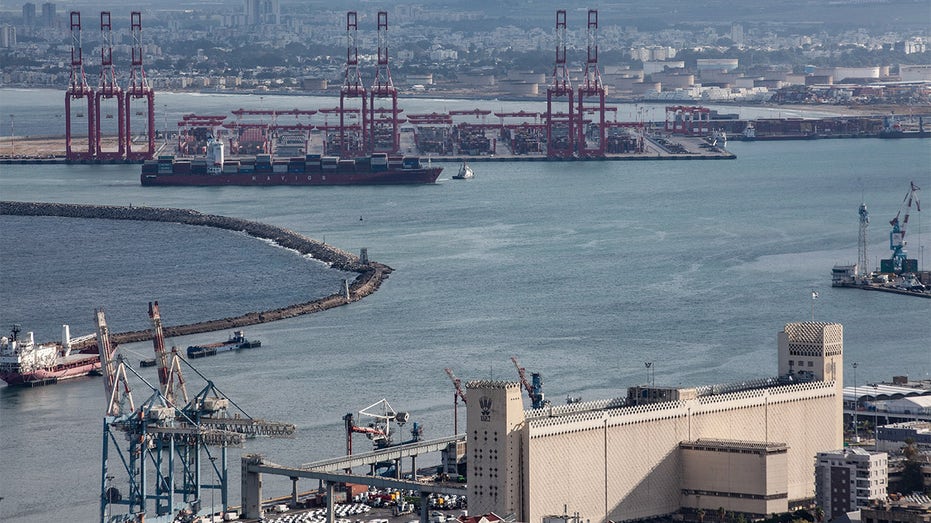Vessels avoiding Red Sea amid ongoing Houthi rebel attacks, adding costs and delays
The Houthis say the attacks on ships in the area are a response to Israel's assault on the Gaza Strip
Iran's Red Sea attacks have 'massive impact' on global shipping: Brent Sadler
Heritage Foundation senior fellow Brent Sadler reacts to BP pausing Red Sea oil shipments after Houthi attacks on 'Varney & Co.'
Leading global freight firms have begun avoiding the Red Sea and rerouting vessels amid ongoing attacks by the Iran-backed Houthi rebels in Yemen.
Oil giant BP on Monday was the latest major company to announce a pause in shipments through the Red Sea, following in the footsteps of Maersk, which had a vessel targeted by anti-ship missiles last week.
The vessels have begun to sail around Africa, adding exorbitant costs and delays that industry analysts forecast will compound in the coming weeks.

Cargo ships are seen at Israel's Haifa commercial shipping port in the Mediterranean Sea on December 13, 2023. (Mati Milstein/NurPhoto via Getty Images / Getty Images)
The Suez Canal, which connects the Mediterranean Sea to the Red Sea, is the shortest shipping route between Europe and Asia. It is estimated that about 15% of world shipping traffic transits via the waterway.
ABN Amro analyst Albert Jan Swart, who spoke with Reuters, estimates that the companies forced to divert their vessels "control around half of the global container shipping market."
Rico Luman, an analyst at ING, said the diversions were adding at least a week of sailing time for container liners. Typically, shipping goods from Shanghai to Rotterdam takes around 27 days via the Suez Canal.
US AND UK TEAM UP TO HIT HAMAS FINANCIERS WITH NEW SANCTIONS
"This will at least lead to delays in late December, with knock-on effects in January and probably February as the next round will also be delayed," Luman said.
The Houthi movement has launched a series of missile and drone attacks on ships in the area, which it says are a response to Israel's assault on the Gaza Strip.

A Yemeni coastguard member loyal to the internationally-recognized government rides in a patrol boat in the Red Sea off of the government-held town of Mokha in the western Taiz province, close to the strategic Bab al-Mandab Strait, on December 12, 20 (KHALED ZIAD/AFP via Getty Images / Getty Images)
The war between Israel and Hamas, which began on Oct. 7, has sent shockwaves through the region, pitting the United States and its allies against Iran-backed paramilitary groups against each other and threatening to cause a broader conflict.
The shipping attacks, meanwhile, have prompted the United States and its allies to discuss a task force that would protect Red Sea routes, a move that U.S. and Israeli arch-foe Tehran has warned would be a mistake.
U.S. Defense Secretary Lloyd Austin on Monday announced the formation of Operation Prosperity Guardian, a multinational security initiative to address security challenges in the Red Sea and the Gulf of Aden.
"The recent escalation in reckless Houthi attacks originating from Yemen threatens the free flow of commerce, endangers innocent mariners, and violates international law," Austin said in a statement. "The Red Sea is a critical waterway that has been essential to freedom of navigation and a major commercial corridor that facilitates international trade."
CLICK HERE TO GET THE FOX BUSINESS APP
The International Chamber of Shipping association said on Friday that the Houthi assault on shipping lanes, which began last month, was an "extremely serious threat to international trade" and urged naval forces in the area to do all they can to stop the attacks.
Reuters contributed to this report.





















